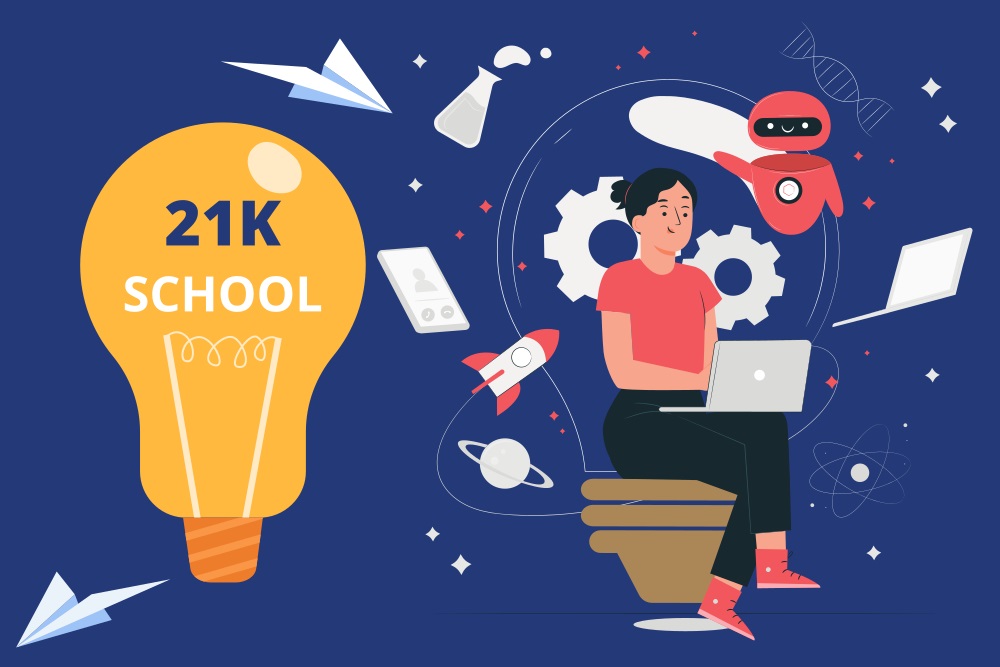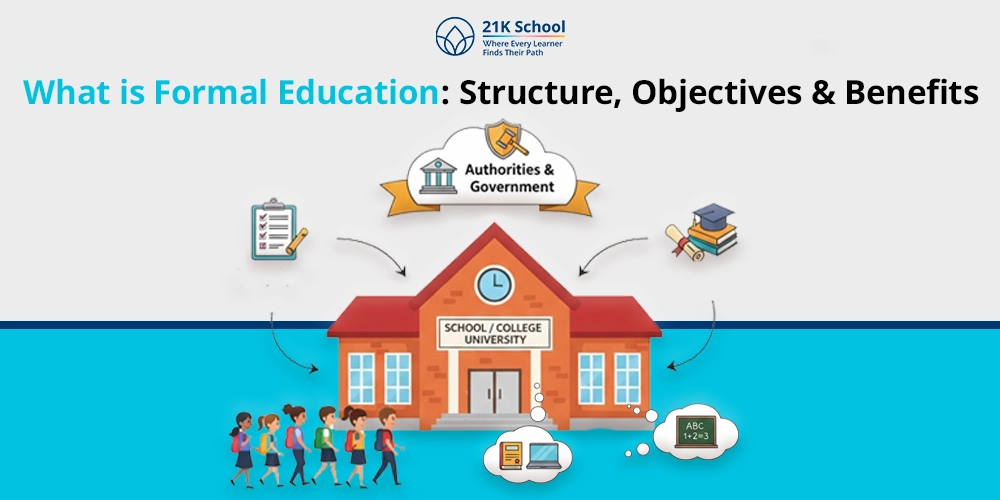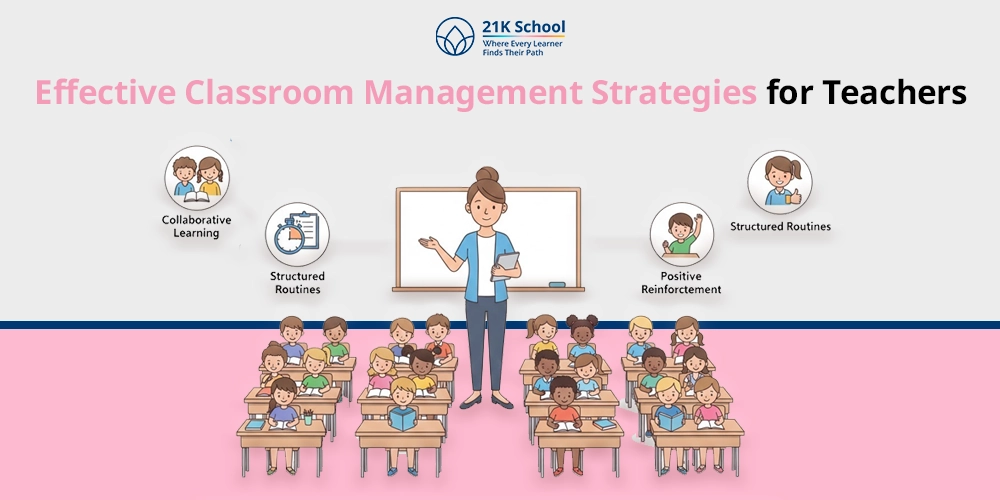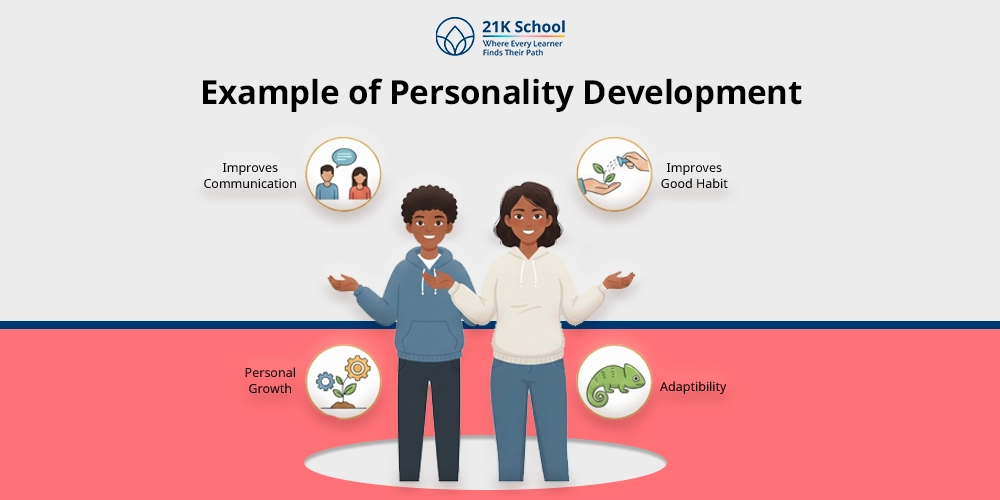
In today’s modern world online learning has significantly changed the educational landscape. Due to its benefits online education is known as versatile and accessible.
Online learning or online education is the practice of attending classes through virtual platforms and the internet, which is also known by digital literacy .
Students can continue their education through online learning, also known as e-learning using a computer and a mobile device. It influence students to access resources and educational materials according to their schedule and learning speed.
Online learning facilitates the online learning experience and helps students to learn time management skills through a customized and flexible learning environment.
Online education provides an equal opportunity of learning to every students irrespective of their backgrounds.
Contents
What is Online Learning?
Online learning is the process of using digital platforms and the internet to take classes. Online learning includes technical terms and digital resources in place of traditional schooling instruction.
Learning Management Systems (LMS) can help students have a better online education. Online education can be conducted through a variety of e-learning platforms such as Spruha Virtual School, PW, K8 School and 21K School.
The primary focus of interactions in online is utilizing technology to deliver educational resources that enhance communication and cultivate relationships between educators and learners. Technology also aids in the evaluation of students development.
Primary Characteristics of Online Learning
Due to the widespread popularity of online learning, everyone has easy access to high-quality education. With online classes they can continue their education whenever it is most convenient for them.
They are able to pick up new abilities and perspectives as a result. Online learning has the potential to enhance students’ cognitive capacities. The salient characteristics of online education are listed below.
1. Real Time Feedback
Online education offers quick communication and feedback. Students who are enrolled in online courses have the opportunity to ask teachers questions and get their doubts answered.
Additionally, teachers can better focus their teaching efforts by using real-time feedback to identify their strengths and areas for improvement.
2. Easy Accessibility
One of the key benefits of online learning is the flexibility and accessibility it provides. Students can study whenever it’s most convenient for them because online programs are available most of the time.
Participants in online courses can participate from any location due to its user-friendliness.
3. Digital Platforms
A wide range of virtual learning platforms are used in online classes. A wide range of online resources, such as multimedia materials, e-books, sample papers, and videos, are also available in these virtual classrooms.
To clarify instructional materials, they use their own video conferencing app along with Zoom, Google Meet, Slack, Ding and other tools.
4. Utilising LMS
Learning Management Systems (LMS) allow students to complete their projects and assignments on time, they are used in digital learning . These tools also help assess students’ learning progress.
To guarantee that a variety of tasks related to online programs and courses are finished effectively and on schedule, an LMS’s components are necessary.
5. Mobile Adjustability
Online learning platforms are mobile-optimised that support mobile devices such as tablets and smartphones to provide educational instructions. The majority of kids rely heavily on tablets and other mobile devices.
Education becomes simple and appropriate to adjust to online learning in order to comprehend it properly by adapting to online education . Students can receive high-quality instruction using a variety of operating systems, including Windows, iOS and Android.
Benefits of Online Learning
Online learning has changed the game of traditional education by enabling all students to receive an equal and flexible education. With online learning instead of traditional schooling, kids can learn at their own speed from anywhere and for less money.
Additionally, especially for young children, online education promotes the development of creative thinking skills and holistic growth. Below is a list of the benefits of online learning.
- Affordable: Cost-effectiveness is one of the key benefits of online learning. Due to lower tuition, travel, and other costs, online education may be less expensive than traditional education. One of the numerous advantages of online learning is that it reduces the operating expenses of traditional classrooms.
- Flexible Learning: A flexible learning environment is one of the major benefits of online education. Giving students content that suits their comfort level and writing speed is crucial to achieving a successful outcome, as every child has there own way of learning.
The ability to learn at their own pace and focus on their areas of strength and weakness is made possible by online learning.
- Develop Collaboration: One amazing benefit of online learning is that it creates collaborative learning with others. Online learning allows students to collaborate with professional instructors and their peers.
One can improve their career prospects and establish connections by taking initiative online.
- Future Career Opportunities: Online education provides opportunities for career advancement. Working professionals can enhance their employment prospects by obtaining advanced degrees, learning new skills, and enrolling in specialized programs through online learning.
This program helps kids get ready and prepare child for the future . Through online learning children can improve their skills by doing real-world work.
- Boost Digital Literacy: Online education promotes digtal classrooms . Because online learning necessitates the use of technology and technical elements. Students are able to comprehend the technological elements which helps them to acquire digital communications and technical skills.
Challenges faced in Online Learning
Online learning has many benefits and is one of the best ways to promote an inclusive learning environment . But a lot of barriers stand in the way of online learning with full potential.
These are some of the challenges that online learning faces.
1. Improper Student Engagement:
Student engagement in online learning is one of the main issues. Their lack of enthusiasm or boredom may cause them to lose interest which creates an issue for online learning.
In order to overcome the problem of low student engagement teachers must make their classes dynamic and interesting.
2. Technical Challenges:
One of the more significant problems with online learning is technical issue, internet, software and technology issues among others it represent the primary problems associated with online learning.
These difficulties made education less effective and the teaching-learning process more difficult.
3. Digital Distraction:
One of the biggest cause that hindered the online learning is due to distraction. Entertainment, social media, game-based learning and other things frequently cause kids to lose focus.
As a result they become less motivated to learn which hinders the process. Children need to develop the ability to accept responsibility for their actions in order to overcome these challenges.
4. Security and Privacy Concerns:
One of the primary things impeding online education is privacy and security concerns. Privacy policies security considerations and data leaks must all be carefully considered in order to maintain a secure environment.
Both safeguarding online learning environments and protecting student data and information are essential.
5. Lack of Motivation:
When learning online students struggle to maintain their motivation.
Some students might find it difficult to stay engaged and motivated in the absence of the conventional classroom structure and accountability. .
Strategies to Enhance the Online Learning Experiences
A virtual education is essential for promoting better outcomes. The online learning experience can be enhanced for students satisfaction by utilizing suitable strategies like microlearning, mobile adaptability and practical methods.
The tactics that can be employed to improve the virtual learning environments are listed below.
- Focus on Personalised Learning: Each student understands concepts in a unique way. Giving students personalised learning is one of the best ways to improve their educational experience since it makes it simple and comfortable for them to comprehend the main ideas.
- Interactive Sessions: Students will become more engaged with the learning process if online instruction is made interactive. Making a class more interactive through gamification, assessment, projects, microlearning etc. will make it easier for students to grasp difficult concepts.
- Community for Collaboration: Creating a student and teacher community is one of the best strategies to encourage online learning. Students can create a sense of community by using online forums, online group projects and virtual study groups to make them feel included and at home.
As due to the benefits of collaborative learning it allows kids to develop a connection with others and helps in developing social skills.
- Focus on Multimedia Learning: Enhancing class engagement is possible through the use of a multimedia system. There are several ways to accomplish multimedia learning including using audio video simulation and more. This program maintains student interest and raises their level of focus.
Future of Online Learning
Online education and learning have a big impact on future aspects. Recent technological advancements and applications demonstrate how technology is propelling online education to new heights.
With the use of AI in education, online learning has surpassed all expectations thanks to gamification, microlearning, VR and AR simulation and other strategies. The use of online education is demonstrated below.
1. AI in Education:
Online learning now incorporates AI giving students access to a flexible and high-quality education. Students can give targeted help and customized feedback with the aid of AI.
Future of AI in education can help with the development and modification of educational resources, guaranteeing their relevance and engagement.
2. Augmented Reality and Virtual Reality:
VR and AR are the newest techniques for simulating videos. It provides videos that look realistic to make the concepts easier for viewers to understand.
With the help of video simulation, this technology makes complex ideas easier to understand. As a result, kids can participate in class activities more effectively and understand challenging material.
3. Blockchain Technology:
A key component of privacy and safety is blockchain technology. Blockchain technology makes data more secure and encrypted by using unique linking technology.
Academic information and other data can be safely stored using blockchain technology without the need for authentication.
4. AI Test and Assessment
AI-based systems are currently used to create student assessments and tests. To create interactive tests for students, an AI tool uses case studies, real-world questions, and sample studies.
The AI system asks difficult questions depending on the starting context in order to assess students’ skills.
5. Smart Tutor:
The Smart Tutor teaching method is one of the incredible methods of knowledge enhancement. These tutors will play a bigger role in online training programs as mentors during the whole learning process.
The teaching and learning process will be autonomous thanks to these artificial intelligence (AI) avatars.
Conclusion
Because it provides students all over the world with individualized, flexible and easily accessible learning opportunities, online learning has fundamentally altered the educational landscape of the twenty-first century.
There are a lot of advantages, like lower expenses, better digital literacy and improved collaboration, but there are drawbacks as well, like low student involvement, technical difficulties and security issues.
Teachers can effectively improve the online learning experience by implementing personalized learning, interactive sessions and community building.
In the future, technologies like augmented reality (AR), blockchain, and artificial intelligence (AI) could make online learning even more interesting and safe.
Future inclusive and productive learning environments could be greatly enhanced by online learning, provided we adopt these developments.



